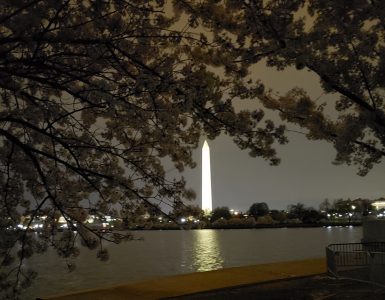The District of Columbia’s government declared a heat emergency early Friday as the heat index crept into the 90s.
“Residents and visitors should take extra steps to beat the heat by staying in the shade or air-conditioning, drinking plenty of water and visiting a cooling center,” said a statement from the city’s Homeland Security and Emergency Management Agency.
(7/10) A Heat Emergency has been issued for the District of Columbia. Heat index of 93 degrees is expected. Visit https://t.co/URE9GBfN7u to find a cooling center near you. Find tips to beat the heat at https://t.co/hjWz8VoxZY. #StayCoolDC pic.twitter.com/TgWojCrYBC
— DC Homeland Security & EMA #StayHomeDC (@DC_HSEMA) July 10, 2020
D.C. triggers its Heat Emergency Plan when either the temperature or heat index surpasses 92 degrees, the city’s benchmark for extreme heat. To date, the city has issued 16 heat emergencies this summer.
These emergencies are standard procedure during in the city, according to Christopher White, deputy director of the DC Homeland Security and Emergency Management Agency (HSEMA). The city projects that the heat index will reach at least 93 degrees during the current heat emergency.
Heat emergencies prompt the District to open its cooling centers, where residents can find air conditioning and water to help ward off heat exhaustion. Shelters, recreation buildings, and schools all over the city transform into spaces for the needy as soon as a heatwave strikes.
This year, because of the ongoing pandemic, these cooling centers feel a little different.
“It’s definitely not business as usual because the District is in an ongoing public health emergency,” said Lauren Kinard, a spokesperson for the DC Department of Human Services.
Some cooling centers remain closed due to the threat of COVID-19, like public libraries. Even still, 19 cooling centers are scattered across the city.
HSEMA targets the city’s homeless population specifically through its efforts to prevent heat exhaustion. Those experiencing homelessness are particularly vulnerable to extreme heat.
In partnership with the United Planning Organization, or UPO, a group dedicated to serving low-income DC residents, the city also preforms welfare checks for those experiencing extreme heat outside. UPO manages the city’s shelter hotline and is authorized to transport people experiencing homelessness to and from shelters.
Longtime exposure to high heat can cause medical complications such as heat exhaustion and stroke. Symptoms include a fast pulse, confusion, nausea, and vomiting.
Vulnerable residents are encouraged to call the D.C. shelter or hypothermia hotlines at 202-399-7093 for transportation to a cooling center. Those experiencing more severe symptoms should call 911.














Add comment